Expansive Jamison Hardy Talks CTX, CUAA, Prior Approval, and Much More
Key takeaways from Rev. Dr. Hardy's 2h15m/~40,000 word interview with Pr. Bryan Stecker - On The Line
Rev. Dr. Jamison Hardy, President of Concordia University System (CUS), was recently interviewed by Rev. Bryan Stecker from the On The Line podcast (OTL). The interview provided a wide-ranging information and intelligence dump that anyone following Missouri Synod happenings should pay attention to.
Rev. Hardy can run down rabbit trails when he’s unleashed, so we thought it would be helpful to summarize the key takeaways. However, we encourage you to watch the whole interview and read the highlights below.
SEE ALSO:
Concordia University Texas (CTX)
CTX Secession and Lawsuit:
"CTX illegally changed its articles of incorporation and seceded from the authority of the church, thus basically stealing the property."
Don Christian's Concerns and LIMOS:
"Don Christian, the former president of CTX, got a communication from my predecessor, Dean Wenthe, and Gerhard Mundinger... I think he felt threatened that CTX was going to be amalgamated into one of the other Concordias."
"Don was upset about some of the things that we were trying to change... ecclesiastical, the LIMOS - Lutheran Identity and Mission Outcomes Standards."
"About 80% of what Don wanted in there we were able to get in there during the committee work going up the convention."
"Bernard Bull during the debate on 7-03B went to the microphone and he said it's very sad that at the table of presidents there's an empty seat that was filled. He was referring to Don Christian."
Secession Timeline:
"They [CTX] had already voted to secede in November of 2022, about eight months ahead of the convention."
"In February and in April there was another voters meeting of regents meeting in April of CTX where they affirmed their decision."
Desire for CTX to Return:
"I want Concordia Texas back in the CUS. I want to be on record... I want Concordia Texas back in the family. We're stronger together than we are apart."
"I want them to repent of their illegal secession, receive absolution, be restored to a church school."
Questioning District President Mike Newman:
"Mike Newman was the District President on the board of regents, and when they went into executive session... I asked him, ‘how did you vote? Did you vote in favor of this secession in November 15th?’
He said, 'I can't tell you because it was an executive session.'" "I told him, 'I'm not asking you what happened in the session. I'm asking you how did you vote? The Bible says let your yes be yes and your no be no. What say you?'"
"He refused to answer, but the truth of the matter is it will come out because the lawsuit is going to require all those John Does to say how they voted."
Impact on Students:
"I think there's about eight or ten students that got the royal shaft job when this occurred because once they seceded, we couldn't certify their candidates."
Doctrinal Concerns:
"There were a lot of doctrinal things happening at CTX... undertones of the role of women, LGBTQ kind of acceptance."
"The state of Texas Governor Abbott outlawed DEI on the public college campuses of the state of Texas, and what is CTX doing now? They have kind of a DEI division on their campus."
Violation of Bylaws:
"Nobody likes to be told what to do... but the Lutheran Church Missouri Synod and walking together in Concordia has said this is how we're going to do it."
"CTX illegally changed their articles of incorporation against the bylaws and justified it with fear that they were going to get amalgamated."
Resolution and Hope:
"My prayer is that we can resolve this and they can become a school of the church again."
"Return the university to its mother. It's not yours to take."
SEE ALSO:
Concordia Ann Arbor (CUAA)
Financial Struggles:
"Concordia Ann Arbor was failing before—bankrupt… almost to the point of bankruptcy."
"When they took it over in 2013, Mequon was turning about a $10 million black bottom-line profit in operations. Well, last fiscal year, not immediately last but 2023, they lost $8 million. Last year, the Ann Arbor campus lost $2 million in operations."
Operational Challenges:
"They were losing money all along on the operational side."
"Numbers were going down both in enrollment and in finance—it was falling apart in 2013."
Growth and Enrollment:
"For the last five or six years, Ann Arbor has been growing—even hit to the point where the state of Michigan said it was the fastest-growing private college in Michigan."
"But what none of these people want to talk about is that 60% of the students that came in to help that growth were athletes, and those athletes cost 20–30% more because the academic students don’t have all the overhead for coaches, uniforms, and facilities."
Decision to Downsize:
"Everything on the main campus is going to be done after the second academic year, and they’re moving to the North Campus."
"They’re downsizing and moving the operations to the North Campus, which is where all the medical stuff is—nursing, PT, OT."
Potential Sale of the Main Campus:
"Are they selling the South Campus? Well, it’s possible. It’s not up right this moment, but it’s on the docket as a possibility."
"To my knowledge, there is no written contract for the main property. There is an offer on the football field, but there’s no decision made."
Church Work Preparation:
"They have to bring back church work preparation—I mean, that’s a must."
"Right now, I think they only had like 10 or 12 church workers total out of 200."
Criticism and Misunderstanding:
"People keep telling the world that I want to close this place. I don’t want to close this place—I’m on record. I don’t want to close Concordia Ann Arbor, but we can’t keep operating the way it is."
"The statistics are true—CUAA was one of the fastest-growing schools. But 60% of the students were athletes, and those athletes cost significantly more."
Emotional Impact:
"One of these people that I’m talking about that are constantly blowing off in Concordia Matters is somebody I went to high school with. They have a child that goes to CUAA, and I understand the emotions of their child’s trauma over this."
Future Vision:
"Ultimately, long-term, I hope there’s a way for us to save the place—to save the North Campus."
"The North Campus is where all the medical stuff is, and they believe those programs, once fully operational and running, would service the debt."
Prior Approval
Explanation of Prior Approval Process:
"There are three different prior approvals: university president prior approval, seminary president prior approval, and theological faculty prior approval."
"At the university presidents level, all the names are nominated, those names go to that panel, that panel meets, and then they give the university regents a slate to elect from."
"The panel for university president prior approval is the president of Synod, the district president of the institution, and the chairman of the Board of Directors of the Lutheran Church Missouri Synod."
"For theological faculty prior approval, the panel is the Council of Presidents chairman, the CUS chairman, and the Synod president."
Criteria for Theological Faculty Prior Approval:
"There are very stringent qualifications... an advanced degree, you can't just have a second master's."
"If you are in a PhD program, that's great, but we want to know what your topic is, what your projected graduation date is."
"If we give you theological prior approval and you become a faculty member and you stop your PhD, we get to revisit. You don't get to just keep your prior approval."
Transparency in the Process:
"Everything about CUS is accessible with very simple clicks. You can find the faculty vetting process on cus.edu. It's all public."
"What we look for is clearly outlined in there."
Criticism of the Process:
"The controversy is there's no explanation given as to why someone doesn't qualify."
"There's a lot of people out there squawking, saying if you're on the roster and in good standing, you should automatically be a candidate."
"People think it's a popularity contest and that Matt Harrison is controlling everything."
Defense of the Process:
"This is not just whimsical. It's not just Jameson Hardy's name goes up there and he's buddies with Matt Harrison and he gets to go through. That is not what happens."
"The amount of work that Matt Harrison does in preparation for the meeting... the comments he makes in terms of what he has read of the men, they watch YouTube videos of their delivering service."
"Mark Braden, chairman of the board, English district pastor, is absolutely thorough with his vetting. Lee Hagan, the COP chairman, is constantly talking to the district president from where the guy is coming, getting information, reading PIFs and SETs."
Response to Attacks on Hardy:
"People believe that Matt Harrison elected Jameson Hardy to destroy the whole Concordia University System and make one classical college."
"Hardy is Darth Vader and Matthew Harrison is the Sith Lord. This has been designated."
"I got railed on Facebook and Concordia Matters for saying that there's no better place for evangelism than on our Concordia campuses."
"These people make these grandiose accusations... Hardy is trying to destroy the Concordia University System. It's simply not true."
Defense of Hardy's Mandate:
"Matt Harrison told me, 'Grow church work.' He told me, 'Pay attention to Lutheran identity. We want our colleges to be as Lutheran as they can be without being ashamed.'"
"His mandate to me is nothing short of grow the place. We don't want to shrink it."
Concordia University System (CUS)
Overview of CUS:
"I am now president of the Concordia University System. The CUS system is the conglomeration of five universities with six campuses."
"That would be Concordia Irvine in California, Concordia Nebraska in Seward, Concordia St. Paul here in Minnesota, Concordia Chicago in River Forest, and Concordia University Mequon North in Milwaukee, which has a second campus in Ann Arbor."
Purpose and Mandate:
"What we are predominantly responsible for now is ecclesiastical visitation and Lutheran identity."
"Supporting the presidents and the Board of Regents... on their Lutheran identity, on their witness to the world, on being a Concordia."
"Matt Harrison told me, 'Grow church work.' He told me, 'Pay attention to Lutheran identity. We want our colleges to be as Lutheran as they can be without being ashamed.'"
Changes in 2022:
"My job changed in 2022 at the Synodical convention. Resolution 7-03B changed pretty much everything that CUS does."
"More has been done in eight months in CUS than probably in the last 20 or 30 years just because the change of 7-03B has occurred."
Current Challenges and Goals:
"We have over 20,000 students in our system."
"I want a thousand church workers by 2025. That's a 25% increase. That's a big, big ask."
"We are actively going after our youth in the church. I'm making it a priority. We're traveling all over this country, trying to reengage in our Lutheran high schools."
Financial Challenges:
"One of our institutions gives about $20 million away in student aid. You need a billion dollars in an endowment with a 5% annual return to get $50 million a year."
"None of our five Concordias together have a billion dollars. I think barely half a billion dollars between all five of them."
Expansion Plans:
"Concordia St. Paul just opened a nursing campus in Denver, Colorado."
"We are investigating regional campuses in desert oases in the United States like the Southeast, Northeast, and East Central."
"It's cheaper for the Concordias to do regional campuses than to set up a full university with all the overhead property and all that other stuff."
Vocational Education:
"Why can't the Concordia University System get into vocational training? We should be hammering this. 40% of students don't go to college anymore."
"We can capitalize financially on giving Lutheran witness to vocational students and growing our portfolio of offerings at our Concordia universities."
Prior Approval Process:
"The prior approval process for theological faculty, university presidents, and seminary presidents is a key part of what CUS does."
"There are stringent qualifications for theological faculty, including advanced degrees and ongoing academic progress."
Criticism and Defense:
"People believe that Matt Harrison elected Jameson Hardy to destroy the whole Concordia University System and make one classical college."
"Hardy is Darth Vader and Matthew Harrison is the Sith Lord. This has been designated."
"These accusations are simply not true. My mandate is to grow church work and strengthen Lutheran identity."
Concordia Texas Secession:
"CTX illegally changed their articles of incorporation and succeeded from the authority of the church, thus basically stealing the property."
"I want Concordia Texas back in the CUS. I want them to repent of their illegal secession, receive absolution, and be restored to a church of school."
CUS Website and Resources:
"You can find everything about CUS on cus.edu. It's a revamped website. Everything is accessible with very simple clicks."
"We have a 'Give Now' button on the website, and we've received several donations from people who are desirous to support church work, faculty development, and Lutheran identity."
Future Vision:
"The Concordia University System is the future. Church work preparation is the future."
"I want our colleges to lean into our identity, lean into our faith, and lean into our belief in the inerrancy of scripture."
Luther Classical College (LCC):
Overview of Luther Classical College:
"There’s a place for Luther Classical College. There’s a means by which they can become a part of the Concordia University System."
"I went out there, I met with the guys. They’ve sent a formal letter requesting CUS to do an informal visit in the fall and potentially they’ll make application to become a school."
Current Status:
"They are not a school of the church right now. There’s no means for them to become a school of the church other than going through the CUS system."
"We recognize that classical education is an area that we need to expand. Some of our current universities have a classical education track—Chicago and Nebraska kind of have some areas where they’re pushing this."
Potential Integration with CUS:
"I’ve worked through with them what that looks like, and we’ll see what the future holds. I can’t make any promises, and they can’t make any promises."
"They’ve sent a formal letter requesting CUS to do an informal visit in the fall."
Support for Classical Education:
"We have a lot of parishes that are offering classical education as a part of their school system."
"My own church, Our Savior in Heartland, Michigan, is moving that way."
Hardy’s Position on LCC:
"I think they have a place, meaning they have a place in the kingdom of God."
"The more we do together and the less we fight together, the more the gospel is proclaimed."
CUS and Classical Education:
"Classical education is an area that we need to expand. We have some of our current universities that have classical education tracks."
"There’s a lot of opportunities there, and I think the more we do together and the less we fight together, the more the gospel is proclaimed."
Hardy’s Visit to LCC:
"I was just out there about six weeks ago. We met with them. I met with their board of regents recently."
"Christian Preus, the chairman of the board, John Hill, the district president—a colleague—we came on the council together, fantastic theologian, good man."
"I’m working with Dr. Ristau and his faculty and staff there."
Future Vision for LCC:
"They’ve sent a formal letter requesting CUS to do an informal visit in the fall and potentially they’ll make application to become a school."
"We’ll see what the future holds. I can’t make any promises, and they can’t make any promises."
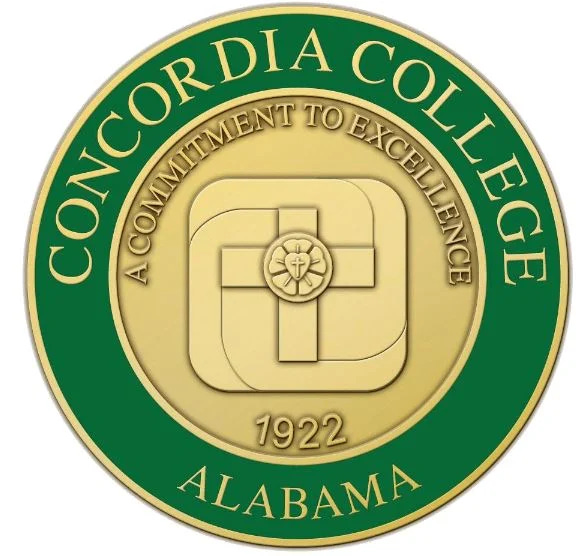
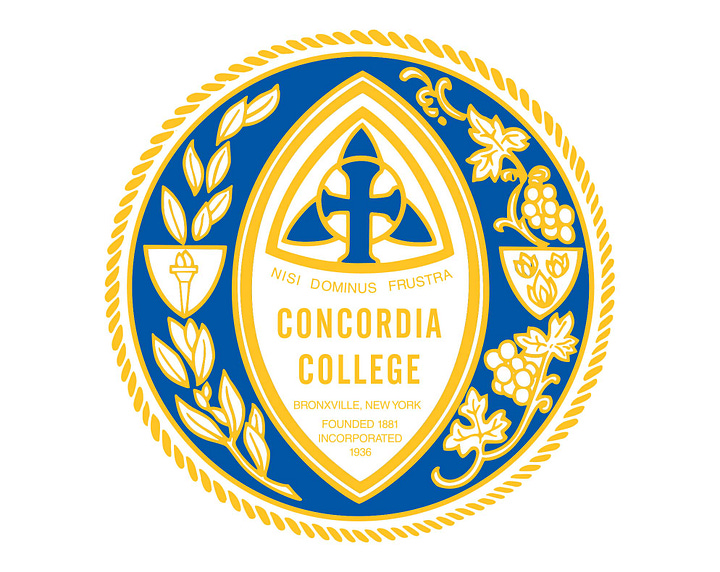
Closing Concordia Colleges
Concordia Selma:
"Concordia Selma, a historic Black college down in Selma, Alabama; their graduation rate was abysmal."
"They would bring kids in to play football; they'd come in the fall, then they'd leave, and that messes up the graduation rate."
"You'd bring these athletes on, and all they wanted to do was play football. They weren’t the greatest students, so their academic performance was not good even if they stayed."
"They started getting into financial trouble. The Synod, individuals, and groups poured thousands and thousands of dollars into Concordia Selma, and there were a number of attempts to ‘save it’."
"At some point, you can't keep throwing money into a hole, so they closed it."
"Of course, that was a big uproar at the convention."
Concordia Bronxville (New York):
"New York is a whole different story; it’s a whole different scenario."
"The property and some of it was sold to another institution, and by the way, that was before it was closed or as a part of the closure."
"Towards the end, they ran through a number of different people as chief financial officer, and that’s never good when you successively have somebody leading the finances that is a different person over the course of a year or two."
"They had completely different issues. Their issues weren’t necessarily graduation rate—it was low church work attendance, low attendance overall, and then you just weren’t getting enrollment."
"It was an overall enrollment issue. There were some operational issues too, but again, that place was sold, property is expensive."
"They just finally shut down. Officially, everything is done about a month and a half ago or a month ago. I just got notification that that’s completely now legally dissolved and done."
Financial Challenges in Higher Education:
Endowment and Funding:
"One of our institutions gives about $20 million away in student aid annually."
"You need a billion dollars in an endowment with a 5% annual return to get $50 million a year. None of our Concordias have that kind of money."
Operational Losses:
"Concordia Mequon lost $8 million last fiscal year, and Ann Arbor lost $2 million in operations."
Efforts to Improve Financial Health:
"We’re trying to create a voucher system where we’re going to have a half a million dollars and give 1,000 students $5,000 vouchers."
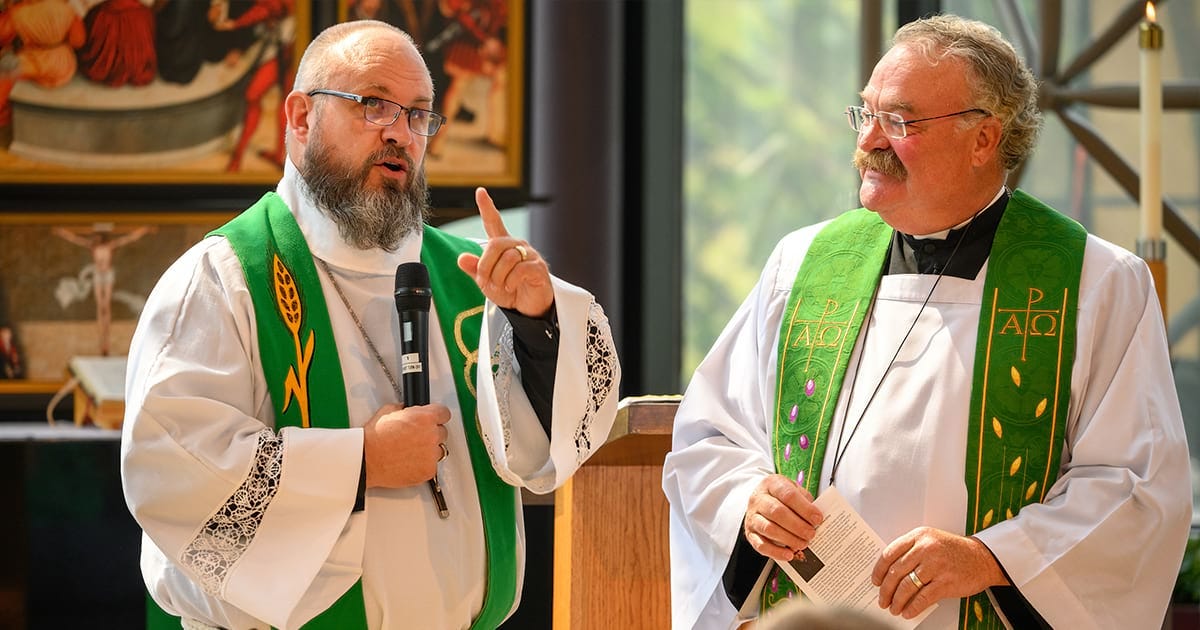
Business experience and its application
Background in Finance and Business Administration:
"I have 20-plus years of experience in large foundation work. I got a doctorate in business administration, finance, and whatnot."
"My background is in finance, and I’ve worked with investments and portfolios for years."
Reviewing and Revamping Investment Strategies:
"I’m looking at our investments, I’m looking at our portfolio, what our asset allocation is in a portfolio because it’s been the same for almost 20 years."
"What standard portfolio asset allocation was 20 years ago is not what it needs to be today when it comes to things like endowments that are perpetual forever."
Partnerships with Foundations:
"I’m partnering with the Le Simmons Foundation—the good folks there—and we’re making progress and things are going in the right direction."
"When I took office, I met with the L. Simmons Foundation, and to be frank with you, this is not something that many people have looked at."
Creating Financial Solutions for Church Work Preparation:
"I’m in the middle of trying to create a voucher system where we’re going to have a half a million dollars and give 1,000 students $5,000 vouchers."
"We’re going to be writing some pretty big grants here. Douglas Patel, my vice president, is really good at that stuff, and we’re going after some big money to start dealing with this."
Understanding Endowment Needs:
"You need a billion dollars in an endowment with a 5% annual return to get $50 million a year. None of our Concordias have that kind of money."
"Our five Concordias together barely have half a billion dollars in endowments."
Focus on Financial Sustainability:
"I believe we need to do our best to operate as close to net neutral and zero as possible because when things go bad, like today, the market dropped 2,600 dollars, it can have a huge impact."
"Dr. Ankerberg wants to operate on a neutral basis because we don’t know what the future of higher ed’s going to be."
Application to Concordia University System:
"We’re trying to weed through all of the foundation stuff and make changes to ensure financial sustainability."
"I’m bringing my financial background to the table to help create systems that support church work preparation and Lutheran identity."
Grant Writing and Fundraising:
"We’re going to be writing some pretty big grants here, and we’re going after some big money to start dealing with this."
"We’ve received several donations from people who are desirous to support church work, faculty development, and Lutheran identity."
Wrestling
Personal Wrestling Background:
"I am in the Hall of Fame at Concordia Wisconsin for wrestling, just so you know."
"I gave up my fourth year of eligibility to actually do professional wrestling. I was in a battle royale; I did that circuit stuff in North Wisconsin."
Biblical Connection to Wrestling:
"The one thing I can promise you is the only sport in the Bible that is actually accurately reflected—Jacob wrestled with the Lord."
"You read that text, and it says that the wrestler Jacob would not let go of the Lord. He had such a grip on the Lord that Yahweh of Sabaoth touched the hip in the socket, and that’s when the wrestler let go."
"This is what I want people to know about wrestlers: by divine right, we’re pretty tough dudes."
Wrestling as a Metaphor for Life and Leadership:
"Wrestling is the best sport—one-on-one—and it hurts. If it’s worthwhile, it should hurt."
"We all wrestle with Satan. When I was younger, my pastor would always say, 'God made Jim that way to wrestle the damn devil.'"
Family Connection to Wrestling:
"My oldest son, Noah, is a Division I wrestling coach at California Baptist University. He had some kids go to the national finals—I was there this year."
"As a father, looking down there and seeing my son coaching or being down on the main floor—it was amazing."
National Wrestling Tournament Experience:
"I wrestled twice in the national final tournament for NAIA for Mequon."
"This year, I was at the national finals when Wyatt Hendrickson from Oklahoma State beat Gable Steveson from Minnesota—it was the most exciting thing I’ve ever been involved with in my life."
Admiration for Wrestlers:
"These wrestlers are the last real warriors. Jacob wrestled with the Lord, and we all wrestle with Satan."
"The modern warriors—these wrestlers—are incredible. Watching them compete is just amazing."
Wrestling and Leadership Philosophy:
"Wrestling is one-on-one, and it teaches you resilience. It’s a metaphor for leadership—you have to face challenges head-on and wrestle through them."
Humor and Wrestling Challenges:
"I wonder who would win in a wrestling match between me and you. I shackled that beast better!"
"I’ve got one year left of college eligibility—maybe I need to go back and wrestle again. You think I’d get a nice contract?"
The English District, LCMS
History and Formation:
"The English District was brought into the Lutheran Church of Missouri Synod in 1911. It was previously its own synodical denomination."
"For three conventions prior to 1911, our brothers—the Germans in the Lutheran Church of Missouri Synod—denied the English District membership because they were English-speaking."
"In 1911, they brought us in, and we became a non-geographic district."
Non-Geographic Nature:
"Today, we have congregations in 30 states and in the Ontario Province of Canada."
"The English District is non-geographic, along with SELC—the Slovaks—and we are the two non-geographic districts."
"We have three circuits in California, two circuits in Arizona, and churches in Idaho, Washington, Nebraska, Missouri, Minnesota, Wisconsin, and more."
Strength and Influence:
"The largest circuit we have is Milwaukee, and the strength of the English District is around the Great Lakes—Indiana, Northern Illinois, and Chicago."
"Chicago was the stronghold for English. During Seminex, we lost half of our churches to the Seminex split."
Confessional Lutheranism:
"In the 1970s, the English District was one of the most liberal districts in the Missouri Synod. They were main players in Seminex."
"Starting with Roger Pittelko in the late 1970s, there was a movement back toward more confessional Lutheranism in the English District."
"Today, the English District is one of the five conservative districts across the Missouri Synod."
Leadership and Legacy:
"I was elected as bishop in 2015 and served until last year, August 31st. I carried out nine full years, but one of those years was a COVID year."
"We really made a hard move toward more confessional Lutheranism during my tenure as bishop."
"The English District has a storied history, and I love being a member of the English District."
Challenges and Growth:
"During Seminex, we lost half of our churches to the split, but successive bishops worked to maintain the English District as a confessional district."
"Under my bishopric for nine years, we worked on fellowship and fixed issues with congregations in Ontario that had to choose between staying with the English District or joining the Lutheran Church of Canada."
LCMS Council of Presidents
Role and Function:
"The Council of Presidents is the board of assignments for the Lutheran Church Missouri Synod."
"Every man's name and every church they’re going to is read and prayed for before the council votes to accept the slate as placement for the Lutheran Church Missouri Synod."
"The Council of Presidents votes to place men in churches, including SMP, M.Div., AR, and all other candidates."
Placement Process:
"The placement directors at the seminaries meet with the Council of Presidents in February, and then at the April meeting, the council votes and places them at the services."
"Teachers and DCEs are also prayed over and placed by the Council of Presidents."
Personal Experience:
"I served for nine years with the Council of Presidents, and I miss being on the council. It was one of the highlights of my career."
"When I came on the Council of Presidents, I was the youngest ever elected in the English District at 39 and a half years old."
"At my first meeting in September 2012, within an hour of being on the council, I was in the middle of it. I leaned over to Bob Newton, who told me to keep my mouth shut, and I said, 'I don’t ever keep my mouth shut, and I normally am the show.'"
Relationships and Disagreements:
"We had a lot of disagreements, but I could look brothers in the face, and we could have a theological wrestling match. You left the room as brothers, even though you had a drag-out fight."
"I have great relationships with many of the brothers on the Council of Presidents to this day."
Leadership and Vision:
"The Council of Presidents is a great group of guys, and I schedule my office time when they’re meeting in St. Louis so I can run into them for lunch or dinner and stay in contact."
"I believe the Council of Presidents is one of the most important bodies in the Missouri Synod, as they oversee placement and ensure theological integrity."
Memorable Moments:
"During the 2016 presidential election primary, the Council of Presidents did an icebreaker where we had to choose which candidate we thought would win. I stood alone in Donald Trump’s corner, and they made fun of me. When he won, they called me a prophet."







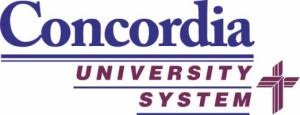


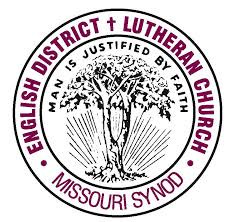
His talk was spectacular and I highly recommend listening to the whole thing. I do miss him as the Bishop of my beloved English District though I am very pleased with his replacement in Bishop Miskus.